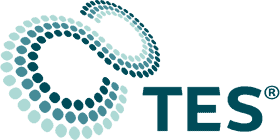Most organizations have realized that AI is not a sentient system looking to take over the world, but rather an invaluable tool. They have come to utilize it to improve their productivity and efficiency. AI solutions have been installed at an astounding rate. Some are used to automate repetitive tasks and to provide enriched data analysis on a previously unrealized level. While this can certainly boost productivity, it is also troubling from a data security, privacy, and cyber threat perspective.
The crux of this conundrum is how the power of AI can be harnessed to remain competitive while eliminating cybersecurity risks.
The Rise of AI
AI is no longer just a tool for massive enterprises. It is a tool every organization can use. Cloud-based systems and machine learning APIs have become more affordable and necessary in the modern-day business climate for small and medium-sized businesses (SMBs).
AI has become common in the following ways:
- Email and meeting scheduling
- Customer service automation
- Sales forecasting
- Document generation and summarization
- Invoice processing
- Data analytics
- Cybersecurity threat detection
AI tools help staff become more efficient, eliminating errors and helping make data-backed decisions. However, organizations need to take steps to limit cybersecurity issues.
AI Adoption Risks
An unfortunate side effect of increasing productivity through the use of AI-based tools is that it also expands the available attack surface for cyber attackers. Organizations must understand that implementing any new technology needs to be done with thoughtful consideration of how it might expose these various threats.
Data Leakage
In order to operate, AI models need data. This can be sensitive customer data, financial information, or proprietary work products. If this information needs to be sent to third-party AI models, there must be a clear understanding of how and when this information will be used. In some cases, AI companies can store it, use it for training, or even leak this information for public consumption.
Shadow AI
Many employees use AI tools for their daily work. This might include generative platforms or online chatbots. Without proper vetting, these can cause compliance risks.
Overreliance and Automation Bias
Even when using AI tools, it is important for companies to continue their due diligence. Many users consider AI-generated content to always be accurate when, in fact, it is not. Relying on this information without checking it for accuracy can lead to poor decision-making.
Secure AI and Productivity
The steps necessary to secure potential security risks when utilizing AI tools are relatively straightforward.
Establish an AI Usage Policy
It is critical to set limits and guidelines for AI use prior to installing any AI tools.
Be sure to define:
- Approved AI tools and vendors
- Acceptable use cases
- Prohibited data types
- Data retention practices
Educate users regarding the importance of AI security practices and how to properly use the tools installed to minimize the risk associated with using AI tools.
Choose Enterprise-Grade AI Platforms
One way to secure AI platforms is by ensuring that they offer the following:
- GDPR, HIPAA, or SOC 2 compliant
- Data residency controls
- Do not use customer data for training
- Provide encryption for data at rest and in transit
Segment Sensitive Data Access
Adopting role-based access controls (RBAC) provides better restrictions on data access. It allows AI tools access to only specific types of information.
Monitor AI Usage
It is essential to monitor AI usage across the organization to understand what information is being accessed and how it is being utilized, including:
- Which users are accessing which tools
- What data is being sent or processed
- Alerts for unusual or risky behavior
AI for Cybersecurity
Ironically, while concerns exist about AI use regarding security issues, one of the primary uses of AI tools is the detection of cyber threats. Organizations use AI to do the following:
- Threat detection
- Email phishing deterrent
- Endpoint protection
- Automated response
Adopting tools like SentinelOne, Microsoft Defender for Endpoint, and CrowdStrike all use AI aspects to detect threats in real-time.
Train Employees About Responsible Use
An unfortunate truth about humans is that they are, without question, the weakest link in the chain of cyber defense. Even the strongest defensive stance on cyber threats can be undone with a single click by a single user.
It is important that they receive training regarding the proper use of AI tools, so they understand:
- Risks of using AI tools with company data
- AI-generated phishing
- Recognizing AI-generated content
AI With Guardrails
AI tools can transform any organization’s technical landscape, expanding what’s possible. But productivity without proper protection is a risk you can’t afford. Contact us today for expert guidance, practical toolkits, and resources to help you harness AI safely and effectively.
—
This Article has been Republished with Permission from The Technology Press.






